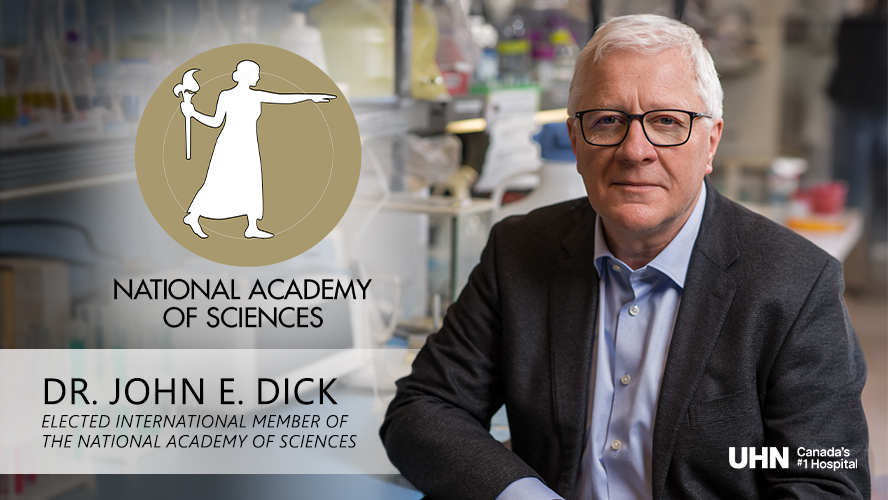
Congratulations to Dr. John Dick, Senior Scientist at UHN’s Princess Margaret Cancer Centre and University Professor at the University of Toronto, on his election to the National Academy of Sciences (NAS), one of the highest honours for a scientist.
On Tuesday, April 29, 2025, the NAS announced the election of 120 members and 30 international members in recognition of their continued achievements in original research. Membership in the NAS not only reflects extraordinary contributions to science but also entrusts inductees with shaping the future of research and policy at the highest levels.
With this recognition, Dr. Dick, known internationally as the first scientist to identify and characterize cancer stem cells, joins the membership of a scientific organization that includes an estimated 200 Nobel Prize winners.
Dr. Dick, who is also the Helga and Antonio De Gasperis Chair in Blood Cancer Stem Cell Research and a Professor of Molecular Genetics at the University of Toronto, is focused on understanding leukemic stem cells to develop better treatments and improve the quality of life for patients with leukemia. His work also earned him an induction into the Canadian Medical Hall of Fame in 2024.
Dr. Dick’s discovery of leukemic stem cells revealed that cancer cells are organized hierarchically, with only a small subset capable of self-renewal. This knowledge shifted research toward cancer stem cells, leading to more effective therapies targeting the cells responsible for the long-term spread of the disease.
The Manitoba-born Dr. Dick joins approximately 500 international researchers and 2,700 from the United States in a membership that is considered a mark of excellence in science.
Congratulations to Dr. Dick and all newly elected members!
The NAS, a private, non-profit society of distinguished scholars, was established by an Act of the United States Congress and signed by then-President Abraham Lincoln in 1863. Committed to furthering science, it aims to provide independent, objective advice on matters related to science and technology.
See here for the full announcement.




